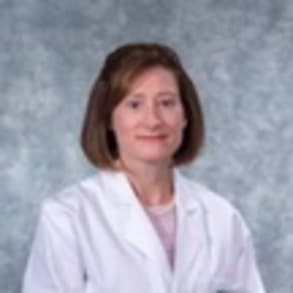Rachel A. Burke, M.D., discusses her area of focus, approach to patient care, and what's new in Surgical Oncology.
My name is Rachel Burke. I'm a general surgeon specializing in surgical oncology at Eastern Virginia Medical School. So I operate on really the entire breath of surgical oncology. But the largest part of my practice at this point is breast surgery. I also do melanoma compatibility area, pancreas, sarcoma. Ah, well, every patient obviously needs an individualized approach. Patients come from all walks of life, which is actually one of the nice things about working here in this community. We have such a a variety of patient backgrounds, educational levels, socio economic status. Um, and it's just very gratifying to connect with all of them. And we have patient navigators to meet the patients frequently before I do. And I have already, um, given them some idea of what their diagnosis is and what to expect. So that makes my job a little bit easier. But I like to balance a sort of a common sense approach that every patient can understand with also being able to offer them the most current cutting edge technology. Most of the really recent um, advancements, particularly in breast cancer, are probably more on the medical oncology side. Um, that being said, um we do do a lot of Uncle Plastic, um, techniques and surgery, which have really been developed over the last 10 to 15 years, I would say. And what Uncle Plastics is is basically, um, combining, um, oncology principles, resection of the tumor, ensuring we get negative margins with plastic surgery principles to give patients the best cosmetic outcome. And what that means is some patients who might previously have been recommended to have a mastectomy can have breast conservation because we're able to move tissue around and give them a good cosmetic outcome and still preserve the breast. So I did the first half of my medical career in the Navy. Um, so I went to the Uniformed Services University and did my residency here at Portsmouth Naval Hospital. Um, I did my oncology training at Roswell Park in Buffalo, um, and then did an entire career, mostly at Portsmouth here locally, the real advantage, Um, when I retired from the Navy was that I knew a lot of people here in the community already, and so that made the transition here very easy. I've always been interested in medical education, So, um, really being able to to stay here at E V. M s teach medical students and, um, and work in this community with such a strong multidisciplinary. A group that treats cancer has been a real blessing.

